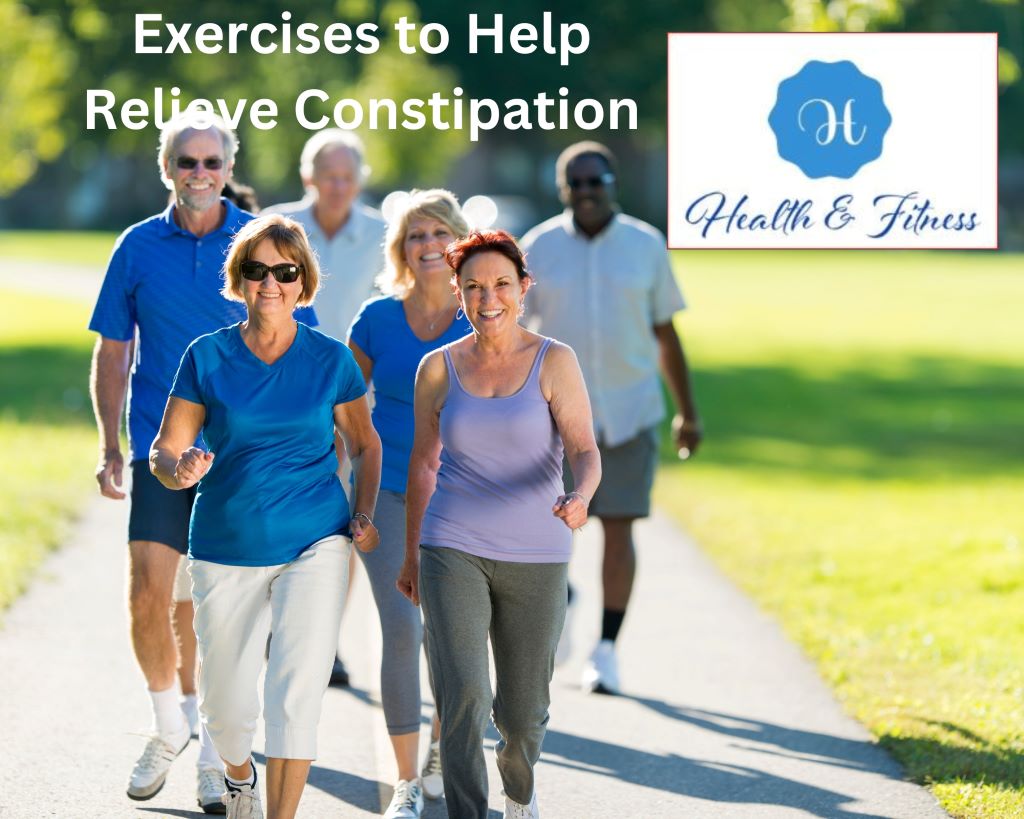Discover the Essential Top 11 Benefits of Regular Exercises for Overall Health. Improve your well-being with the advantages of regular exercises.
Introduction
Healthy living must include regular exercise. Regular exercise has many positive effects on our physical, emotional, and general well-being. However, finding the opportunity to work out regularly can be challenging because of hectic schedules and heavy workloads.
This blog article will review 11 advantages of regular exercise for overall health so you can see why it’s crucial to prioritize physical activity in your daily routine. Exercise positively affects our health and well-being, from better respiratory and cardiovascular function to more vigour and endurance.
Among many other advantages, it can lower the chance of chronic diseases and enhance cognitive function. This article will give you the knowledge and inspiration to get started, whether you’re new to exercises or hoping to include more physical activity in your daily routine.
Let’s start now!

The Top 11 Benefits of regular exercises for overall health
Regular exercise has long been known to positively affect health, from better physical to better emotional well-being. Regular exercise can significantly enhance your general health and aid in the prevention of chronic diseases. The following list of the top 11 advantages of regular exercise for general health will be covered in this blog post:
1-Improved cardiovascular health
Regular activity benefits the heart. It strengthens heart tissue and reduces heart disease risk. Here are some specific ways exercises can benefit your heart:
Lowers heart disease risk:
Regular exercises reduces risk factors for cardiovascular disease by lowering blood pressure, cholesterol, and body obesity.

Exercises strengthen your heart muscle:
Regular exercise strengthens your heart, making it more effective at pumping blood.
Improves circulation
Exercise helps improve blood flow throughout your body, including to your heart.
This can help ensure your heart gets the oxygen and nutrients it needs to function correctly.
Reduces inflammation
Chronic inflammation is a risk factor for heart disease. Exercise have been shown to reduce inflammation, which can help protect your heart health.
Lowers blood pressure
Heart illness is linked to hypertension. Exercise lowers blood pressure, honing your heart work. Therefore, people should do 150 minutes of moderate or 75 minutes of vigorous aerobic exercises per week for arterial health. Running, riding, and swimming are vigorous exercises. You should talk to your doctor before beginning a fitness program if you have any health issues.

2. Better respiratory health
Exercise improves arterial health, but it also improves respiratory health. Regular activity improves respiratory health:
Exercise strengthens breathing muscles, increasing lung capacity. You’ll breathe in more air over time.
Improved oxygen delivery
Working out requires more air. Improved lung capacity helps muscles work better by delivering oxygen.
Breathlessness
Even asthmatics can benefit from regular activity. Exercise improves lung health and fitness.
Reduced risk of lung conditions
Exercise lowers the risk of asthma and COPD. (COPD).
Exercise can also improve symptoms and lessen exacerbations of these conditions.
Improved fitness
Exercising improves our overall fitness, which helps us handle physical actions, including those that tax our respiratory system.
Respiratory patients should consult their doctor before starting an exercise regimen.
Regular exercise improves respiratory health safely with their aid.
Exercise improves breathing and health.
3. Stronger bones and tendons
Exercise strengthens bones and muscles and improves cardiorespiratory health. Regular exercises benefit your muscular system:
Muscle strength
Stressing muscles makes them stronger. This improves daily work and reduces falls and injuries.
Improved bone density
Weight-bearing sports like walking, running, and weightlifting can help prevent osteoporosis and fractures.
Lower fall risk
Exercise improves muscle strength, balance, and coordination, especially in older people.
Better circulation and inflammation enhance joint health with regular exercise.
Like respiratory health, exercise improves fitness, making physical tasks easier and reducing injury risk. Weight-bearing and resistance training is essential for musculoskeletal health.
Weightlifting, yoga, and brisk jogging are examples. Start slowly and contact your doctor before starting any new exercise regimen. Regular exercise strengthens bones and muscles, helping you age independently.

4. Increased flexibility and balance
Flexibility and balance are as crucial as muscle strength and bone density. Regular exercise improves suppleness and balance:
Improved range of motion
Stretching regularly makes daily jobs more accessible and reduces injury risk.
Reduced muscle tension:
Stretching routines also improve posture and reduce muscle strains and injuries.
Improved balance:
As we age, our balance deteriorates, raising fall risk.
Regular exercise can improve balance and coordination, reducing falls, especially in older people.
Body awareness
Yoga and Pilates enhance body awareness, which improves posture and reduces injury risk.
Reduced stress and anxiety
Exercise reduces stress and anxiety, improving well-being and quality of life. Stretching and balance training can improve flexibility and balance, lowering injury and fall risk. Yoga, Pilates, and tai chi are examples. Regular exercise can improve your physical function and lower injury risk, helping you age independently and enjoy life.
5. Weight management

Exercise aids weight loss and control in these ways:
Calorie deficit
Exercise burns calories, helping you lose weight.
Muscle mass
Building muscle makes your body burn energy even at rest.
Reduced body fat
Regular activity reduces body fat, which improves body composition and weight loss.
Reduced hunger:
Exercise regulates appetite hormones, reducing food cravings and improving portion control.
Increased energy consumption and weight management
Exercise may not be enough to lose weight. Diet, calorie control, and lifestyle changes are also important. Regular exercise can handle weight and improve health. Before starting a new exercise regimen, consult your doctor and aim for 150 or 75 minutes of moderate- or vigorous-intensity exercise per week. Maintaining a healthy weight with regular exercise and healthy living improves your health and quality of life.
6. Improved mood and mental health as one benefit of regular exercise
Exercise boosts mental and bodily health. Regular exercise benefits mental health:
Reduced stress and anxiety
Exercise reduces stress and anxiety, improving mental health.
Improved mood
Regular exercise can help alleviate melancholy.
Self-esteem
Exercise boosts self-esteem and self-confidence, improving life view.
Improved cognitive function
Exercise improves memory, focus, and mental health.
Better sleep
Exercise improves sleep quality and duration, boosting mental health. Exercise boosts mood.
Yoga and moderate-intensity exercise can reduce stress. Start gently with your doctor’s approval.

7. Increased energy and stamina
Exercise boosts energy and stamina. Exercise boosts vigour and endurance:
Improved cardiovascular health
Regular exercise improves blood flow and oxygen delivery to muscles, boosting endurance and reducing fatigue.
Muscle strength
Building muscle increases energy efficiency and endurance.
Improved metabolism
Exercise boosts metabolism and energy levels.
Reduced stress and anxiety
Exercise reduces stress and anxiety, boosting energy and outlook. Regular exercise boosts energy and stamina, making life more enjoyable. Strength training can boost the effects of 150 or 75 minutes of moderate or vigorous weekly exercise. Start slowly and consult your doctor before starting any new exercise regimen. Regular exercise can boost your health and happiness.
8. Reduced risk of chronic disease
Exercise reduces chronic illness risk. Long-term health benefits of exercise include:
Lower heart disease risk
Regular exercise improves arterial health, lowering heart disease risk.
Lower stroke risk
Exercise improves arterial health, lowering stroke risk.
Lower type 2 diabetes risk
Exercise improves insulin sensitivity.
Lower cancer risk
Regular exercise lowers the risk of bowel, breast, and lung cancer.
Improved immune function
Exercise boosts immunity, lowering the risk of illnesses and chronic diseases.
Regular exercise lowers the risk of chronic diseases, extending life. Consistent exercise and a healthy lifestyle can reduce chronic disease risk and enhance health.
9. Improved sleep is the best benefit of regular exercise
Exercise improves sleep quality and health. Exercise improves sleep in these ways:
Better sleep quality
Regular exercise improves sleep quality, making it more relaxed.
Reduced sleep apnea symptoms
A common sleep disorder that can cause daily fatigue and other health issues, exercise can reduce symptoms.
Improved sleep quality and quantity
Exercise reduces insomnia symptoms.
Daytime energy:
Better sleep quality can boost energy, reducing fatigue and boosting function.
Reduced stress and anxiety
Exercise reduces stress and anxiety, enhancing sleep quality and reducing sleep disturbances. Regular exercise improves sleep quality and quantity and general health. Try yoga or meditation and 150 or 75 minutes of mild or vigorous weekly exercise for stress relief. Start slowly and consult your doctor before starting any new exercise regimen. Exercise and a healthy lifestyle can help sleep and health.

10. Improved cognitive function
Exercise improves memory, attention, and mental speed.
Exercise has these brain benefits:
Increased brain blood flow
Exercise improves brain cell oxygen and nutrient supply and promotes brain cell growth.
Improved mood and stress
Exercise improves mood and reduces stress, improving brain function and decision-making.
Improved neural plasticity
Exercise helps the brain adapt to new situations.
Reduced cognitive decline
Regular exercise reduces the risk of cognitive decline and dementia in older people.
Brain Health
Exercise improves brain health, cognitive function, and quality of life.
Exercise improves memory, attention, and mental speed. Try games or learn a new skill besides 150 or 75 minutes of moderate- or vigorous-intensity weekly exercise. Start slowly and consult your doctor before starting any new exercise regimen. Exercise and a healthy lifestyle enhance brain health and cognitive function.

11. Longevity and quality of life
Seniors can live longer and better with regular exercise. Long-term health benefits of exercise include:
Longer and better life
Regular exercise increases lifespan.
Improved physical function
Exercise reduces falls and disability in older people.
Reduced risk of chronic disease
Regular exercise lowers the risk of chronic diseases, enhancing health and quality of life.
Better mental health
Exercise improves mental health and quality of life.
Better social ties
Exercise improves social connections, which boosts well-being and quality of life. Seniors can live longer and better by exercising daily. At least 150 minutes of moderate or 75 minutes of vigorous-intensity exercises per week, along with challenging physical and mental tasks, are recommended. Start slowly and consult your doctor before starting any new exercise regimen. Exercise and a healthy lifestyle can extend and enhance your life.

FAQs for Benefits of Regular Exercises
Q1: What are the 10 health benefits of exercise?
A1: Regular exercise offers a bunch of outstanding health perks! Here are 10 key benefits:
- Improved Heart Health: Exercise strengthens your heart, reducing the risk of heart disease.
- Weight Management: It helps you shed extra pounds and maintain a healthy weight.
- Boosted Mood: Exercise releases feel- chemicals in your brain, reducing stress and anxiety.
- Increased Energy: You’ll have more pep in your step as exercise boosts your stamina.
- Better Sleep: It can lead to deeper and more restful slumber.
- Stronger Muscles: Exercise builds and tones your muscles, making you stronger.
- Enhanced Flexibility: Regular stretching exercises improve your flexibility.
- <strong>Bone Health: It helps maintain strong bones and reduce the risk of osteoporosis.
- Sharper Mind: Exercise boosts brain function and memory.
- Longer Lifespan: Studies show that active folks tend to live longer.
Q2: What are the 20 benefits of exercise?
A2: You’re in for a treat! Here are 20 fantastic perks of regular exercise:
- Cardiovascular Health: Reduces the risk of heart disease and stroke.
- Weight Loss: Burns calories and helps you shed pounds.
- Mood Enhancement: Lifts your spirits and reduces stress.
- Energy Boost: Increases endurance and vitality.
- Better Sleep: Promotes deeper and more restful sleep.
- Muscle Strength: Builds and tones muscles.
- Improved Posture: Helps you stand tall and strong.
- Enhanced Flexibility: Keeps your body limber.
- Bone Density: Strengthens bones and prevents osteoporosis.
- Cognitive Function: Boosts memory and brainpower.
- Stress Relief releases tension and anxiety.
- Social Connection: Opportunities for socializing.
- Immune System: This bolsters your body’s defences.
- Pain Management: Alleviates chronic pain.
- Metabolism: Speeds up your metabolism.
- Digestive Health: Aids in better digestion.
- Improved Balance: Reduces the risk of falls.
- Respiratory Health: Enhances lung function.
- Skin Glow: Promotes healthy skin.
- Longevity: Adds years to your life.
Q3: What happens to your body when you start exercising regularly?
A3: When you kick-start regular exercises, your body goes through some incredible changes:
- Increased Endurance: You’ll find yourself lasting longer during physical activities.
- Strength Gains: Muscles get stronger and more toned.
- Weight Management: You’ll notice gradual weight loss or maintenance.
- Mood Enhancement: Thanks to those endorphins, a happier, less stressed you.
- Better Sleep: Enjoy deeper and more restful slumber.
- Improved Flexibility: Stretching exercises increase your range of motion.
- Lower Blood Pressure: Exercises can help reduce hypertension.
- Enhanced Lung Capacity: Breathing becomes easier.
- Sharper Focus: Your cognitive function improves.
- Increased Energy: More pep in your step throughout the day.
Q4: How do regular exercises help us answer?
A4: Regular exercises are like a superhero for your body and mind! Here’s how it comes to the rescue:
- Physical Health: It keeps your heart strong, weight in check, and bones sturdy.
- Mental Well-being: Exercise is a natural mood booster, reducing stress and anxiety.
- Energy Levels: You’ll feel more energized and alert.
- Longevity: Studies suggest it may help you live longer.
- Social Connection: Group workouts foster friendships.
- Disease Prevention: Reduces the risk of various diseases.
- Quality Sleep: You’ll snooze better and wake up refreshed.
- Body Confidence: Helps you feel good about yourself.
- Brainpower: Boosts memory and brain function.
- Overall Happiness: Regular exercise contributes to a happier, healthier you!
Conclusion
Regular exercise improves cardiovascular, respiratory, bone, muscle, flexibility, balance, weight management, mood, mental health, energy, stamina, risk of chronic disease, sleep, cognitive function, and longevity.
You can live longer and happier with regular exercise and a healthy lifestyle.
If you find a Meditation, Wellness Coach Then Visit this site:

Adel Galal is a health and wellness writer with over 30 years of experience studying and writing about health, fitness, nutrition, and healthy living. He is the founder of NextFitLife.com, where he shares practical, evidence-based guidance to support long-term health at any age. Adel’s mission is simple:
to help people make smarter health choices that fit real life, at any age.



